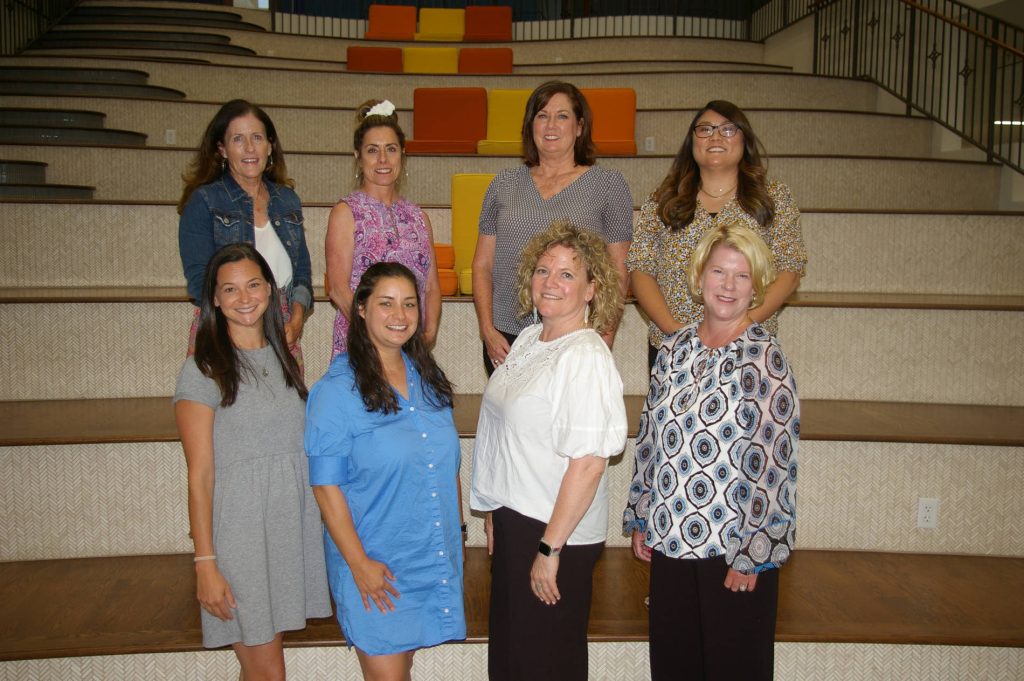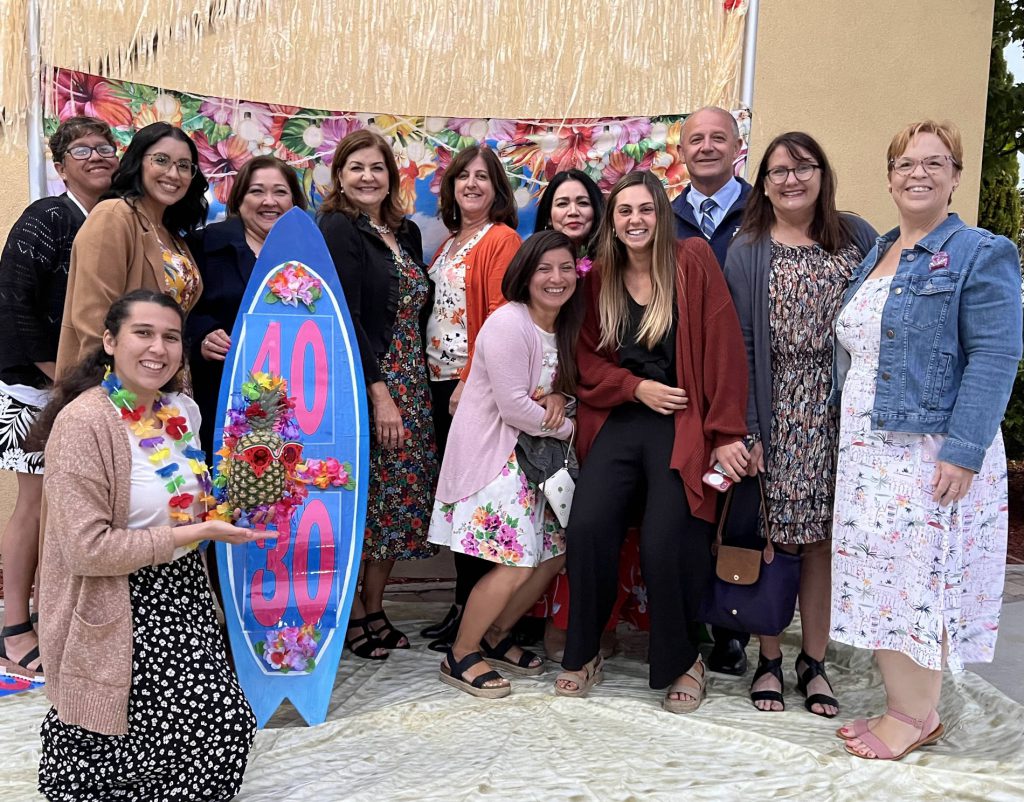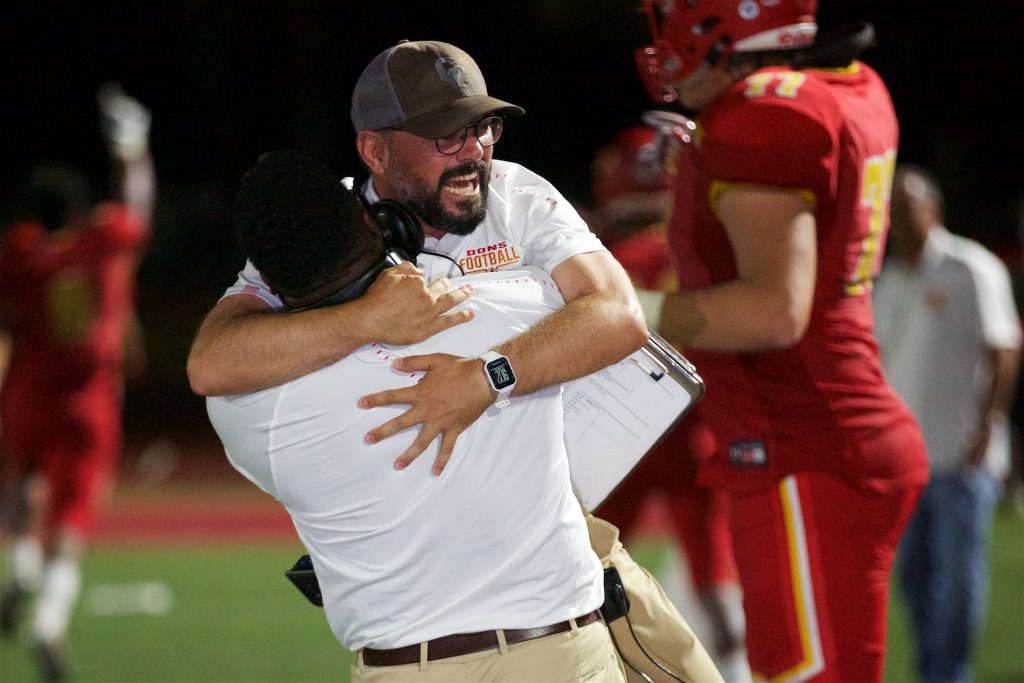SAN DIEGO — Melissa Fugitt has wanted to be a teacher for as long as she can remember.
In the pretend classroom that she set up during her childhood, her first pupils included stuffed animals and an older sister.
Fugitt, 42, has come a long way since then.
Over two decades in education, she has taught at two local Catholic elementary schools –– first, at St. Mary Star of the Sea School in Oceanside and, since 2019, at St. Gregory the Great School in Scripps Ranch, where she teaches second grade.
For the past three years, she also has shared her expertise as a member of the diocesan Office for Schools’ Teacher Liaison Team, a group of eight teachers of various grade levels and academic subjects who present professional learning programs for fellow educators and facilitate teacher collaboration.
As the Office for Schools puts it, “The Teacher Liaison Team works to improve learning for all students by increasing educator capacity throughout the diocese.”
About 20 years ago, when Fugitt was a recent college graduate applying for her first teaching assignment, she wasn’t sure that she wanted to teach at a Catholic school. The San Diego native had attended public schools in her youth and, while applying for work, wasn’t discriminating between Catholic and public schools.
When St. Mary Star of the Sea School offered her a position as fifth-grade teacher, she prayed about it and decided to accept. It didn’t take her long to believe that the Catholic school system was where she was supposed to be.
“Being a Catholic school teacher is a vocation,” said Fugitt, whose husband teaches at Stella Maris Academy in La Jolla and whose two children are Catholic school students. “This is something that you do because you’re called to be a teacher. It’s not something that you do to get rich.”
She recalled attending a recent volleyball tournament with her daughter. There, she ran into former students and parents whom she had known at St. Mary Star of the Sea and hadn’t seen since moving to St. Gregory the Great. Reflecting on the “instant reconnection” and the hugging that accompanied that impromptu reunion, she sees “that family feeling” as emblematic of the Catholic school experience.
In recent years, Fugitt also has witnessed a greater sense of community among local Catholic educators from across the diocese –– and the Teacher Liaison Team has played a part in this positive trend.
“Before the pandemic, all the schools were kind of separate,” she said. “We did our own thing, and it’s like, ‘My school is good in these ways, and your school is good in these ways, and we’re different.’”
Fugitt said that teacher liaisons took a leadership role “in bringing us all together.”
She recalled COVID-era Zoom meetings through which teachers connected with grade-level counterparts from other schools to “get ideas and help each other out.”
“Instead of just being, ‘This is my school, this is my grade,’ we’re all working together now,” she said, describing such esprit de corps as “a huge benefit for the diocese.”
This year, Fugitt’s work as a teacher liaison has been focused on early literacy and phonics. She and two co-facilitators are teaching kindergarten, first-grade and second-grade teachers how to implement a program called UFLI Foundations, which was developed by the University of Florida Literacy Institute.
She said the diocese’s goal is for all students in kindergarten through second grade to meet or exceed the national standards for reading and writing. Already, she can see the positive impact of UFLI Foundations in her own classroom.
“I love being a teacher liaison because I help teachers see the potential in every student,” said Fugitt, who is currently working toward a master’s in Educational Leadership, with an emphasis in Social Justice, through Loyola Marymount University.
The Schools Office encourages and assists teachers to continue their professional development, with the university playing an important role.
“The positive impact that I can make in my community by teaching students and teachers to see the beauty in each other will be like ripples in a pond,” added Fugitt. “They will positively impact teachers, who in turn will impact numerous students, who will impact the community at large.”









